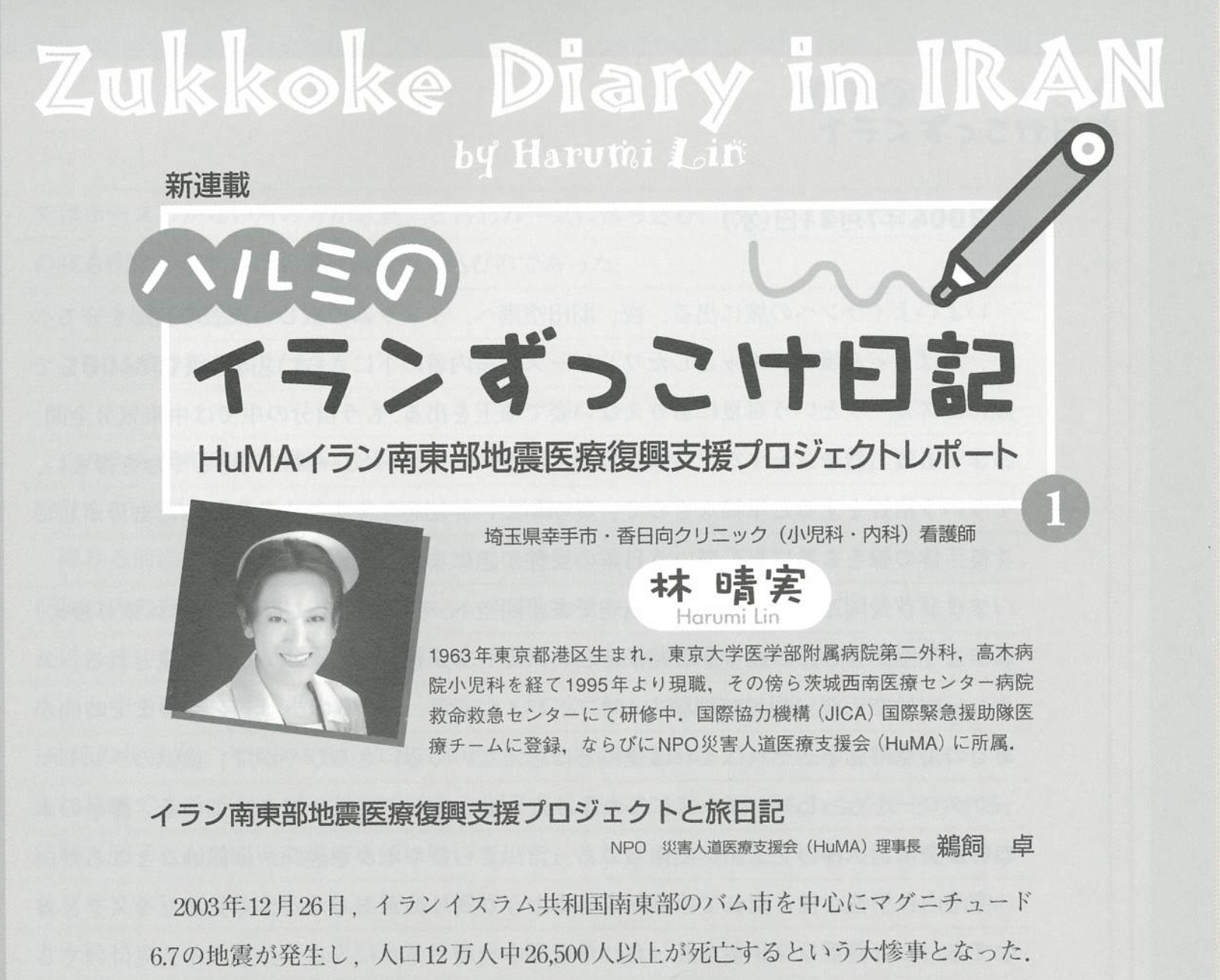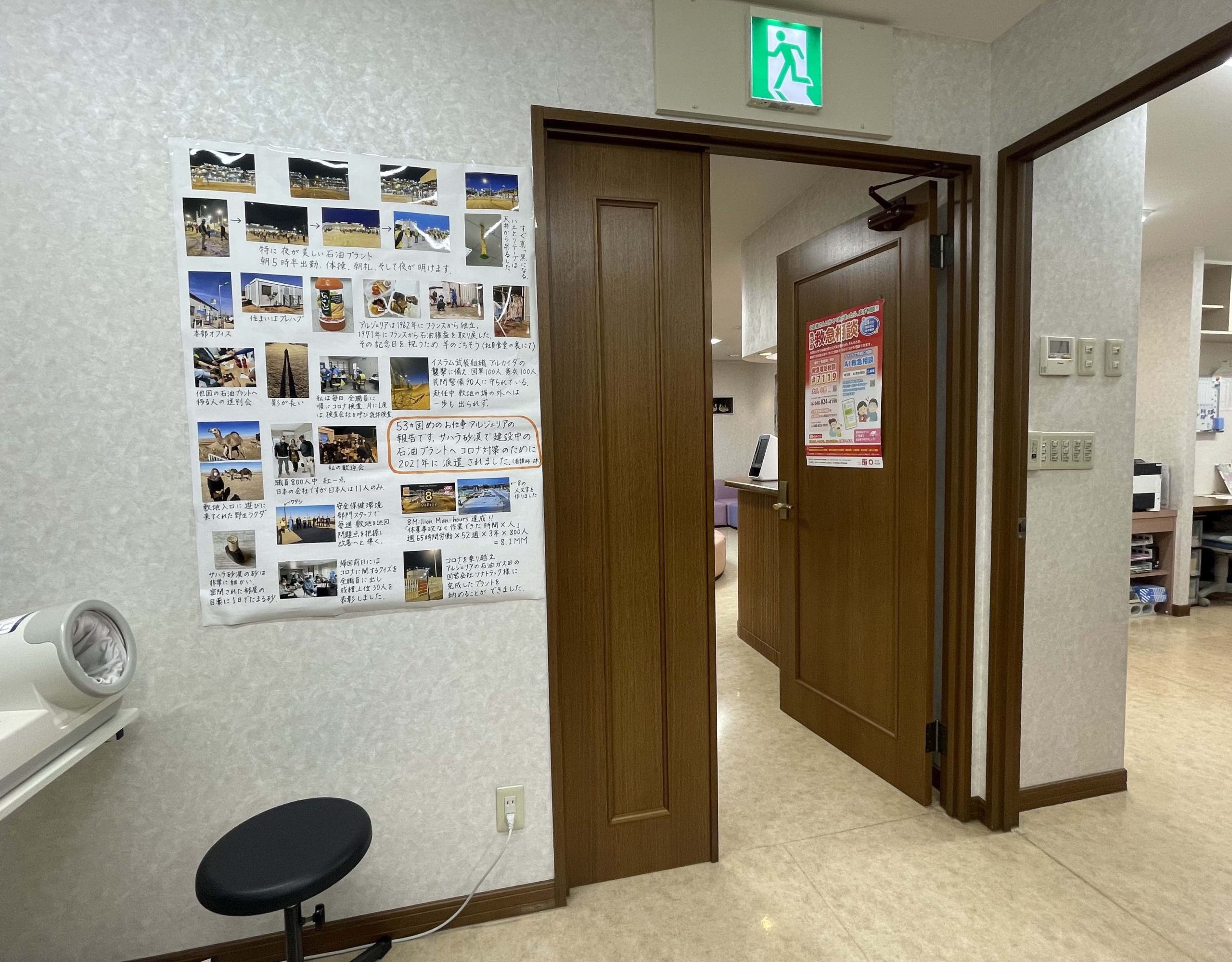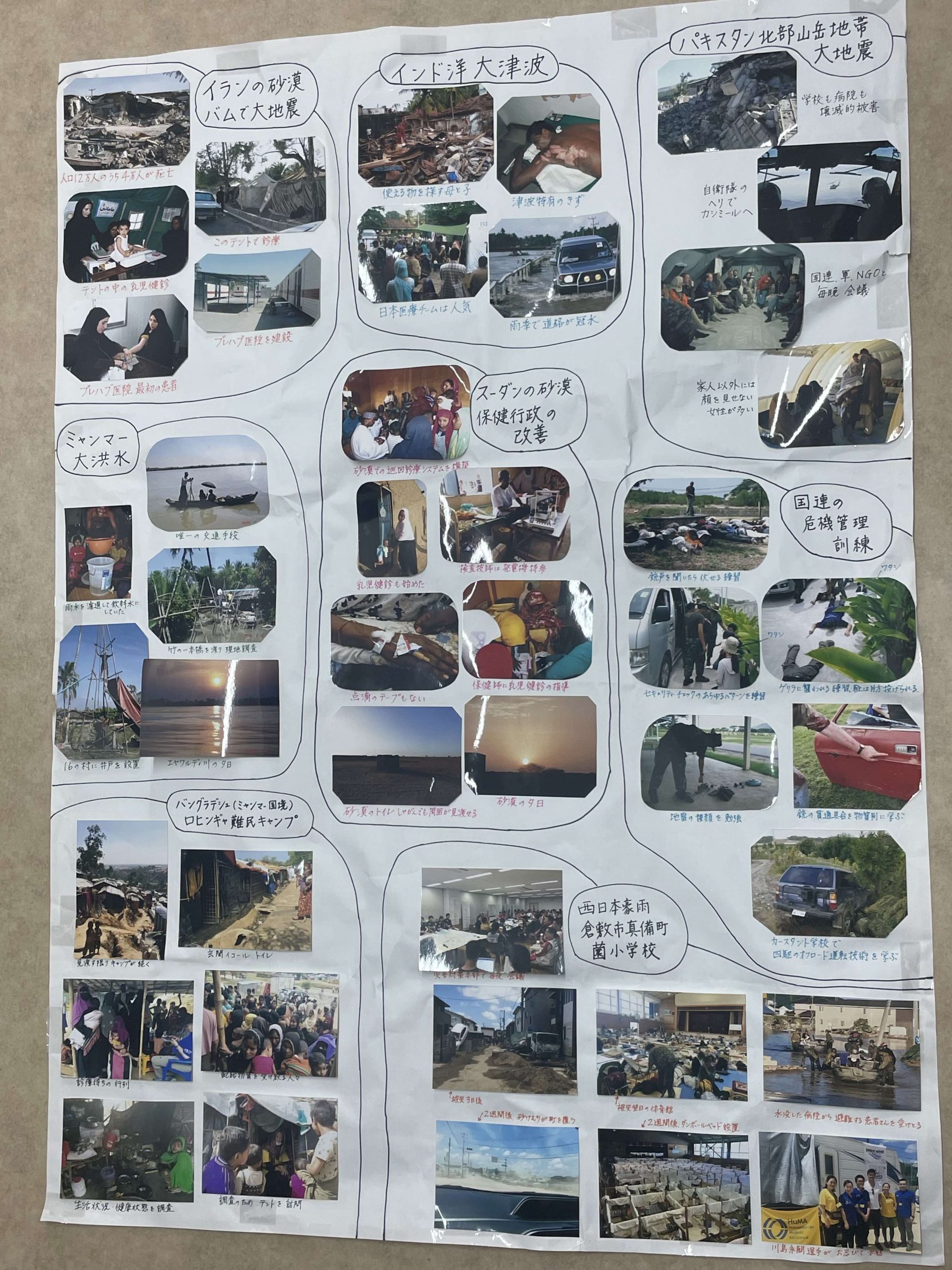#8 Harumi Lin, Nurse/Logistician (Kahinata Clinic)
Interviews highlighting people involved with HuMA’s activities. The eighth episode features Ms. Harumi Lin, a nurse with numerous experiences for overseas assistance activities. During the Turkey-Syria Earthquake in February 2023, she went to the site as a member of the advance team for research. Let’s take a close look at Ms. Lin’s passion through her continued activities beyond borders.
You will never know what you can do unless you go there
In my childhood, many people had a strong bias against foreign nationals although the trend fades away nowadays. Even as a child, I thought, “it is not the right way to look down foreign nationals because of the differences in nationalities” every time I saw inconsiderate speech and behavior of adults around me. Later, I met my husband from Taiwan and got married. As I saw my husband become puzzled by differences in culture and lifestyle and my children face difficulties in the countries, I started thinking, “I want to help people in trouble regardless of the differences in their nationalities.” That is part of my background for deciding to become a member of HuMA.
It was just after I joined HuMA in the winter of 2023 when a magnitude 7.8 earthquake struck an area near the border of Iran and Pakistan, and a decision to send a support team from HuMA was made. As we had many doctors and nurses with extensive experiences of working in affected areas, I never expected to be offered such a dispatch opportunity.
My family was worried about me saying, “what can you do as a mere nurse?” but I decided to go to Iran as my first mission in HuMA because I was thankful for being selected as the team member and felt, “I will never know what I can do unless I go and try.”
Working as a nurse and logistician
The mission amid the major earthquake in Iran was construction of a prefabricated clinic to be replaced with local medical institutions that were devastated by the event. Acute care support after the disaster occurred was provided by a nationally dispatched team and we were to support the following medical reconstruction. Prefabricated material needed to be transported from Iran’s capital, Tehran, to the disaster-stricken site by road. It took about one month for the transportation. The senses of fulfillment and accomplishment I felt after returning home temporarily, re-visiting the site, and completing the opening ceremony of the clinic was so big that I myself became bewildered.
 |
| “Iran diary” that reports our daily activities was serialized on a monthly magazine of emergency medicine a year after our operation |
I have been responsible for logistics (activities necessary for on-site medical support such as arrangement of equipment and materials, and coordination with administrative agencies) in many activities after the operation in Iran. I think that my experiences of negotiation, coordination, employment, education and paperwork gained by running a private clinic in Japan worked well.
There are many doctors and nurses who are playing an active part on emergency medicine front. I am not in the same street as them in terms of knowledge and ability of disaster medical care. It is my role to prepare an environment that enables them to display their ability during on-site assistance.
Respect the policy of a nation that receives the support
During the major earthquake in Turkey and Syria in February 2023, I went to the site as a member of the advance team for research. Our mission was to research what support was necessary to prepare an environment for a dispatch of the main team. Unfortunately, the main team couldn’t be dispatched regardless of our earnest efforts to find a way to realize it since the permission for the on-site operation was not given.
The Turkish government had a strong policy that they would rebuild medical service by themselves. No matter how much we think they need assistance, we had to refrain from providing it if it would be forcing unwanted favors on them.
Our activities should be missions that are welcomed by not only affected people but also countries receiving the assistance. They must not be activities for our self-fulfillment or performance records. It was my experience that made me rethink that it is important to respect the national policy and have “a courage to give up.”
Cheers of people around me empowered me
In a self-operated clinic, photos of the assistance activities I have engaged in so far are displayed. There are some cases I have to go out at short notice to respond to a request for a dispatch, so I started displaying them thinking that I would be happy if what I was working on was conveyed to local patients and clinic staff even if only slightly. Many of them have given me positive comments such as “I didn’t know it” and “What you are doing is wonderful.” I am able to continue my activities because of understanding and support from people around me. I think that they have contributed to the assistance at second hand.
 |
 |
| Presenting what the activities are like in Myanmar, Iran, Pakistan, Rohingya refugee camps and other nations |
Even though I have accumulated many experiences, I have confidence by no means. I often suffer powerlessness in the face of enormous damage or complicated international situation. Nevertheless, you will never know if you don’t give it a try. I will do my best for what I can do. Reminding myself of that, I take a step toward the affected site every time I am chosen for a dispatch.
*Ms. Lin also participated in several dispatches for medical assistance in the Noto Peninsula earthquake that occurred in January of this year.

